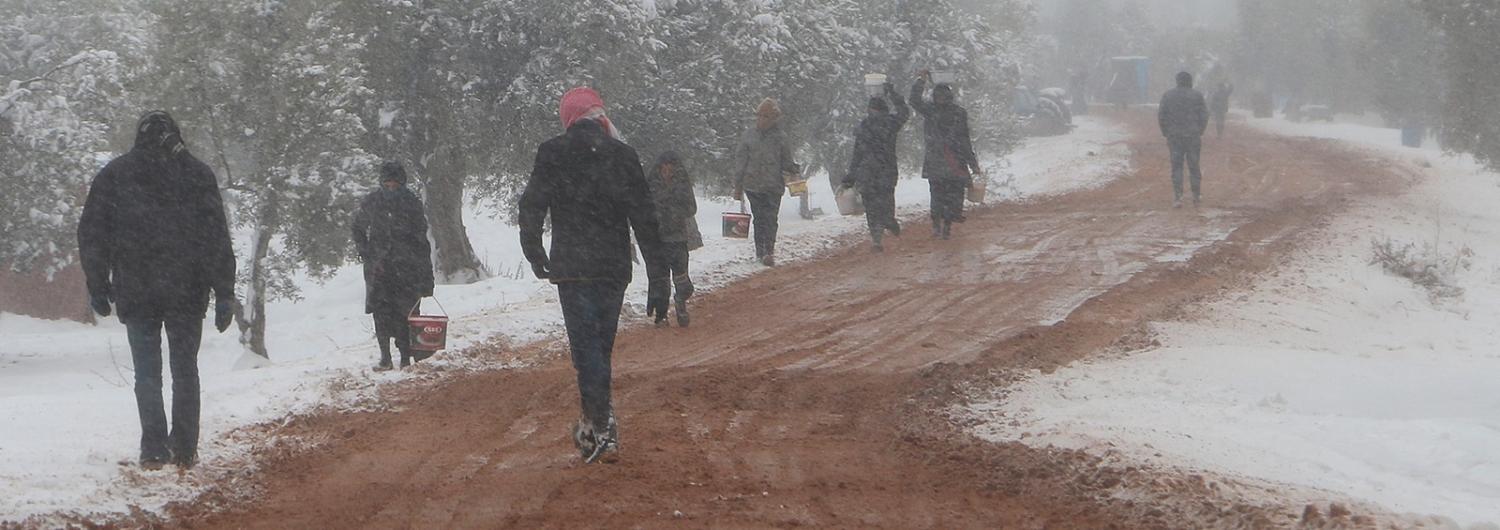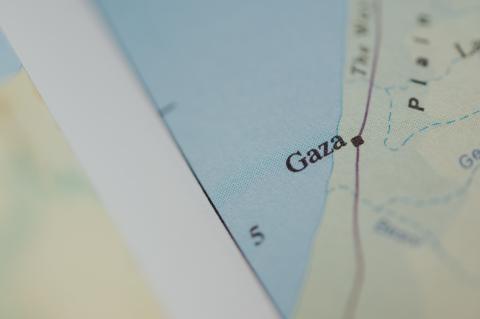It was another year of war for Syria, one in which the tide swung from forces opposed to the Assad regime back to the Syrian military and those aligned with it. The Lowy Institute Research Fellow Rodger Shanahan made sure Interpreter readers knew not just what was going on but what it meant. In the words of Bob Bowker, Adjunct Professor at the Centre for Arab & Islamic Studies at ANU and former Syrian ambassador:
Anguish over the humanitarian tragedy of Syria, including Aleppo, is no substitute for policy, and in that regard Rodger Shanahan can be relied upon for careful and balanced appraisal of the political and military factors which bedevil choices for western countries. Shanahan is all too aware of the risks attendant upon the application of military power to situations where credible, achievable and durable political objectives justifying such use of force have not been articulated. And he brings to his analysis a respect for the limits of western influence in the Middle East that critics of US policy should acknowledge.
In February, the Munich meeting of the International Syria Support Group arrived at an agreement for a lull in fighting to allow in desperately needed humanitarian aid. Shanahan was cautious in his appraisal:
Of course, the utility of this agreement will become pretty apparent in the next one or two weeks. We will soon be able to make an informed judgment about whether it is of any practical benefit or whether it is simply another insubstantial announcement, with the real solution ultimately coming via the barrel of a gun.
In March, Assad forces and allies ousted ISIS from the ancient city of Tadmore (Palmrya). Shanahan explained why the recapture was more political than strategic.
As the political negotiations continue to limp along and a reduction of violence has been achieved in many areas in Syria, any signs of Syrian government military success on other fronts against internationally-acknowledged terrorist groups can only strengthen its hand. This is particularly the case as the apparent unity of effort of the Syrian government coalition contrasts (as always) with the disunity of the various militias in the north and south of the country.
By May, the Geneva peace process was 'pretty much moribund,' Shanahan concluded.
While the 'cessation of hostilities' has more or less held and led to a reduction in deaths, a golden thread has started to unravel the cessation: Aleppo. This is not only because Aleppo has been a strategic focus of the regime since the introduction of Russian airpower allowed Syrian and allied forces to resume offensive operations, but also due to the fact that Jabhat al-Nusra operates within it.
In September, Shanahan wrote of the holes in the latest cessation of hostilities agreement 'that you could drive a truck though'. By October, with images of the bombs raining down in Aleppo, the predictable calls for the US 'to do something' were coming thick and fast. Shanahan battted them away:
President Obama has no shortage of commentators and pundits who have any number of suggestions for getting involved in military action in Syria, but not one of them has any coherent sense of where such action would lead, or even what to do when the opening military actions don't achieve the effect envisioned. That is the difference between the calculations of a commander-in-chief, who needs to look at things strategically, and commentators and advocates who can't see past the tactical.
As the year drew to a close Aleppo was falling and the calls for the West to do something, anything, to rescue civilians became louder. Shanahan suggested the world's ire would have been better directed at the rebel groups who were ready to keep sacrificing civilian lives in a battle they were clearly not going to win.
It’s true that many civilians have died and will die in Aleppo at the hands of the Assad regime. The wide use of area weapons inside populated areas contravenes international humanitarian law, and there are reports (unverified and in many cases from pro-opposition outlets) that extra-judicial killings have been carried out. All horrible.
But it is also fair to focus on the armed groups in east Aleppo, and why they appeared willing to fight to the last Syrian civilian, even after their fate was sealed. East Aleppo was going to fall, but the armed groups ensured that more of it was destroyed and more civilians within it were killed than ever needed to be the case.
The war is not over yet. Assad forces still have to retake Idlib and Raqqa. In relation to the former, Shanahan suggested Assad may not be in any hurry.
A festering concentration of al-Qa‘ida aligned jihadis, Salafist and Islamist fighters and nationalist groups in the one province will suit Damascus’ purposes. And while Assad works out how to cut deals with Syrian Kurdish groups in the northeast and tribal groups in the east after Islamic State has collapsed, fixing as many armed elements as he can in Idlib will allow him to better concentrate his forces and maintain a coherent narrative for the outside world’s consumption.
Come January 20, Syria will no longer be Obama's problem. Shanahan pondered how Trump will act in Syria, given two seemingly contradictory points of view.
...simplifying US policy towards Syria by acknowledging Russia’s stake and downplaying Assad’s departure as a prerequisite for the resolution of the civil war is also in line with Tehran’s policy. Trump has been deeply critical of the Iran nuclear agreement and told to the American Israel Public Affairs Committee (AIPAC) that he would stand up to Iran’s ‘aggressive push to destabilize and dominate the region’. Yet a new Syria policy along the lines described here would actually suit Tehran. Is Trump's AIPAC statement inconsistent with his comments on Syria? Absolutely. But inconsistency is an aspect of the Trump presidency we will all have to learn to live with.

